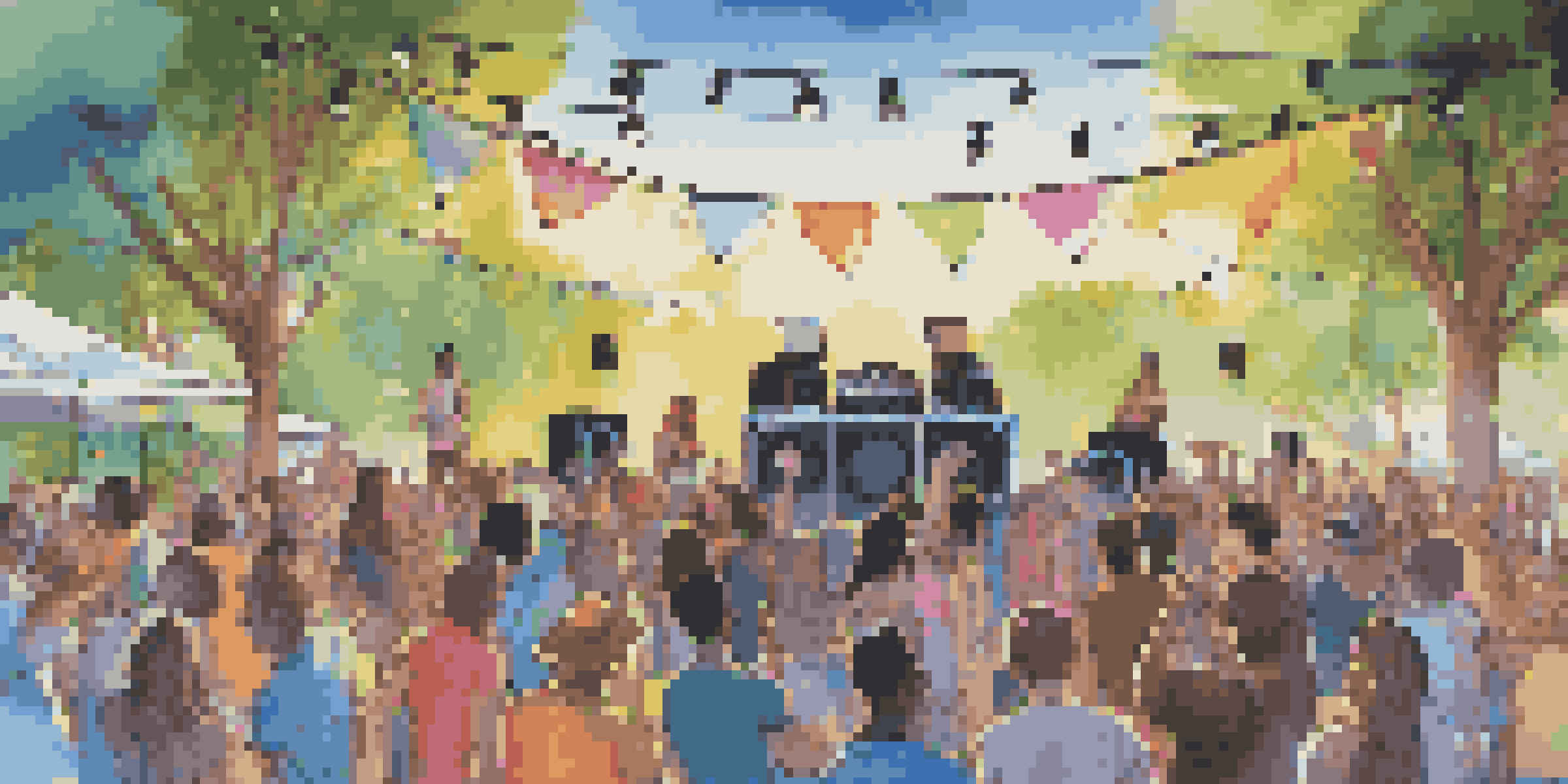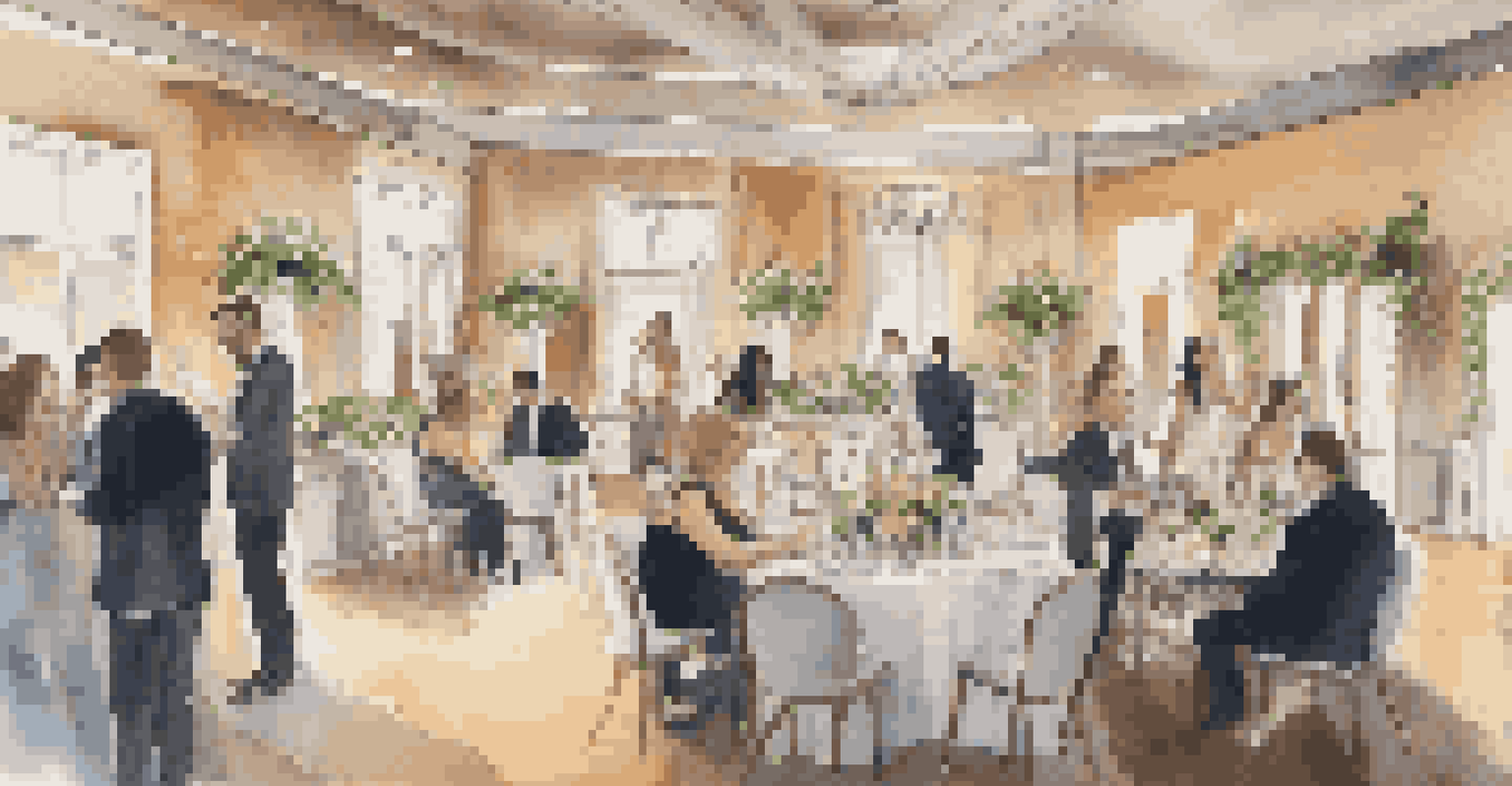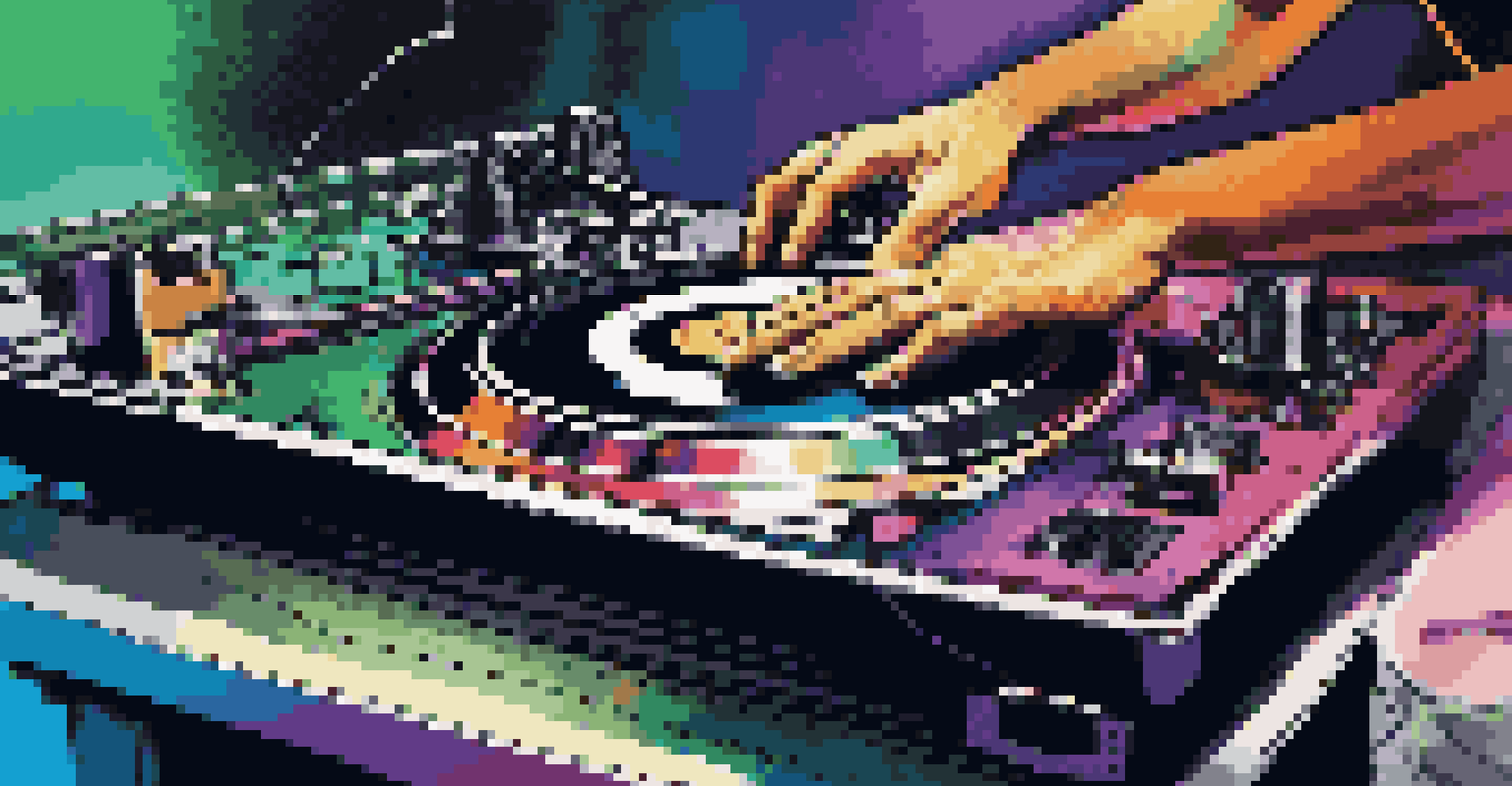DJing and Event Planning: Tips for Successful Gig Management

Understanding the Role of a DJ in Event Planning
As a DJ, you're not just in charge of the music; you play a key role in setting the event's tone and vibe. Your music selection can elevate the atmosphere, making it memorable for guests. Understanding the event type—be it a wedding, corporate gathering, or nightclub party—helps tailor your playlist to meet the audience's expectations.
Music can change the world because it can change people.
Moreover, effective communication with event planners is crucial. Discussing the event's theme and any specific requests ensures you create a cohesive experience. This collaboration not only fosters a smooth workflow but also builds your reputation as a reliable DJ.
Remember, your job involves more than just spinning tracks; it includes reading the crowd and adapting your set accordingly. The ability to respond to the audience's energy can transform a good event into an unforgettable one.
Essential Equipment for a DJ Gig
Having the right equipment is fundamental to executing a successful DJ gig. This includes a quality mixer, turntables or controllers, and a reliable sound system. Investing in a good set of headphones can also help you cue tracks smoothly, ensuring transitions are seamless.

Additionally, consider backup options for every piece of equipment. Whether it's extra cables, a backup laptop, or a portable hard drive with your music library, being prepared for technical glitches can save the day. Remember, it's better to have it and not need it than to need it and not have it.
DJ's Role in Event Atmosphere
A DJ is essential in shaping an event's vibe through thoughtful music selection and crowd engagement.
Finally, familiarize yourself with the venue's setup beforehand. Understanding the layout can help you optimize your sound placement and create the best listening experience for attendees.
Creating a Customized Playlist for Events
Crafting a customized playlist is a blend of art and science. Start by understanding your audience—their age, preferences, and the event's mood. This initial research will guide you in choosing tracks that resonate and keep the energy up throughout the event.
The DJ is the conductor of the party, guiding the audience through a musical journey.
Mixing genres can also be a great way to cater to diverse tastes. For instance, blending classic hits with modern tracks can appeal to both older and younger guests. The goal is to keep everyone engaged and on the dance floor.
Lastly, don't forget to include special requests from clients or guests. This not only personalizes the experience but also shows that you value their input, making your set feel even more special.
Effective Communication with Event Planners
Open lines of communication are vital for successful gig management. Regular check-ins with event planners allow you to stay updated on any changes or specific requirements. This proactive approach helps build trust and ensures you are aligned with their vision.
During these discussions, be clear about your own needs as a DJ, such as setup time and space requirements. Setting expectations early can prevent misunderstandings and keep the event running smoothly. It also demonstrates your professionalism and commitment to the event's success.
Importance of Equipment Readiness
Having reliable equipment and backups is crucial for a successful DJ performance, ensuring smooth transitions and minimal disruptions.
Lastly, after the event, consider following up with the planner. A simple thank you or request for feedback can solidify your relationship and pave the way for future gigs.
Mastering the Art of Reading the Crowd
One of the most valuable skills a DJ can have is the ability to read the crowd. This means observing how attendees respond to different tracks and adjusting your set accordingly. For example, if you notice the dance floor emptying, it might be time to switch to a more upbeat track to reignite their enthusiasm.
Pay attention to the energy in the room; the best DJs are like conductors, guiding the audience’s emotions through music. Engage with the crowd through eye contact and body language to gauge their reactions. This interaction can help you make on-the-fly decisions that elevate the overall experience.
Remember, the goal is to create a shared experience. When the crowd feels connected to the music and each other, it enhances the event's atmosphere and makes your performance truly memorable.
Promoting Yourself as a DJ and Event Planner
In today's digital age, promoting yourself effectively is crucial for success as a DJ and event planner. Utilize social media platforms to showcase your work, share live sets, and post testimonials from satisfied clients. Engaging content can attract new followers and potential clients who are inspired by your unique style.
Networking is also key—attend industry events and collaborate with other professionals. Building relationships with event planners, photographers, and venue owners can open doors for new gigs. Don’t underestimate the power of word-of-mouth referrals; a satisfied client can be your best advertisement.
Effective Communication is Key
Maintaining open communication with event planners fosters collaboration and helps align the DJ's performance with the event's vision.
Lastly, consider creating a professional website that highlights your services, past events, and contact information. A well-designed site not only enhances your credibility but also provides potential clients with a clear overview of what you offer.
Preparing for the Day of the Event
Preparation on the day of the event can make or break your performance. Start by arriving early to set up and test all your equipment. This gives you ample time to troubleshoot any issues and ensures you’re ready to go when the event starts.
It's also important to have a checklist that includes all your gear, backup equipment, and even personal items. This way, you can focus on the performance rather than worrying about what you might have forgotten. A little organization can go a long way in reducing stress.

Lastly, remember to stay hydrated and take breaks when needed. Keeping your energy levels up is essential for maintaining the right vibe throughout the event.